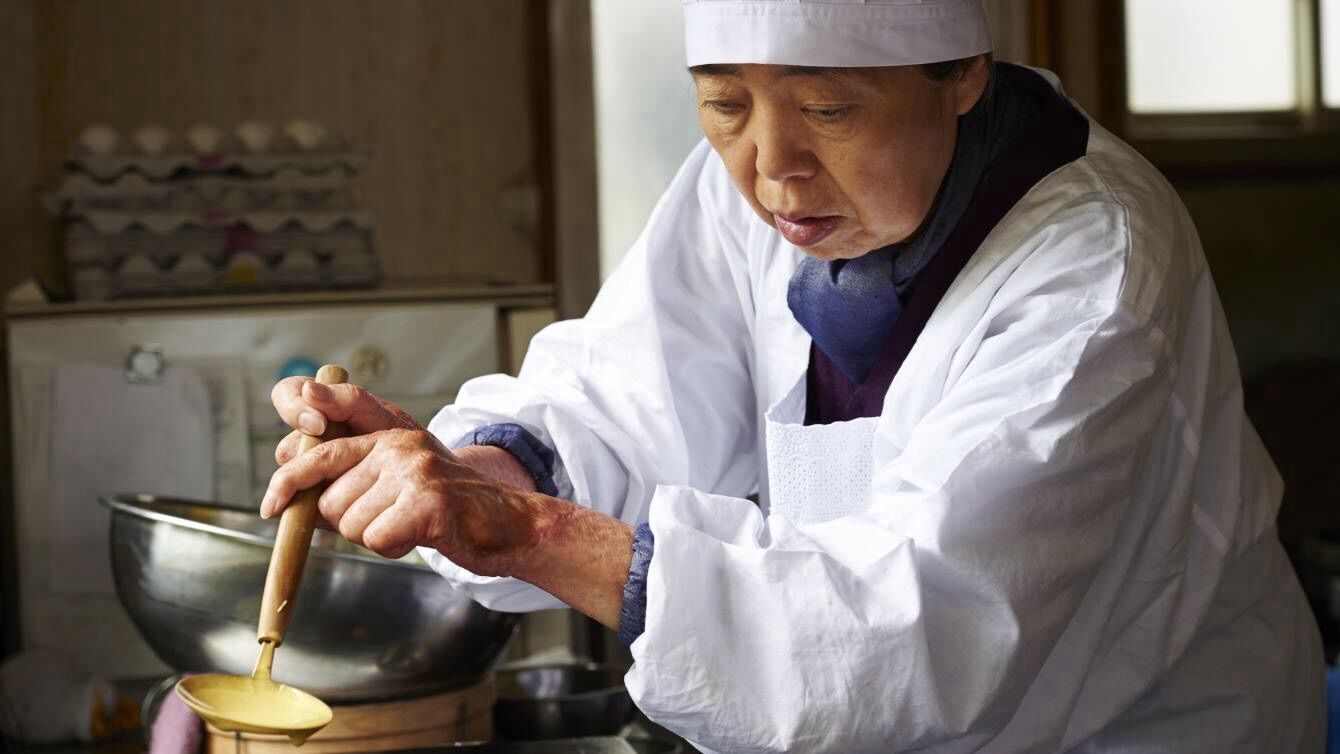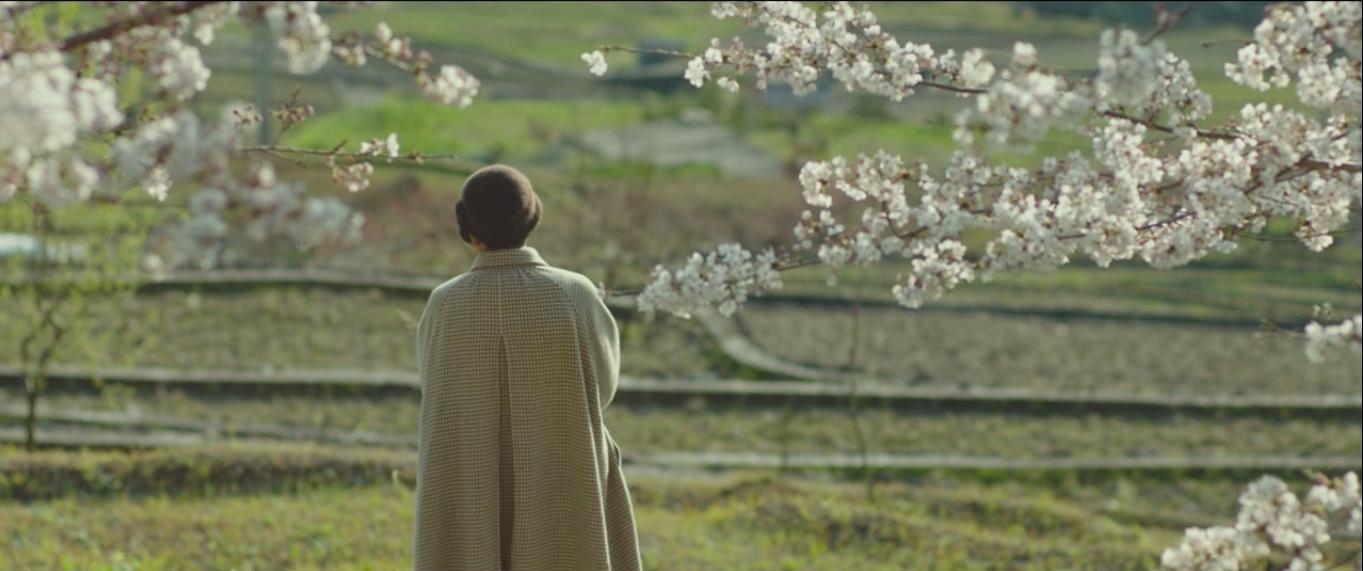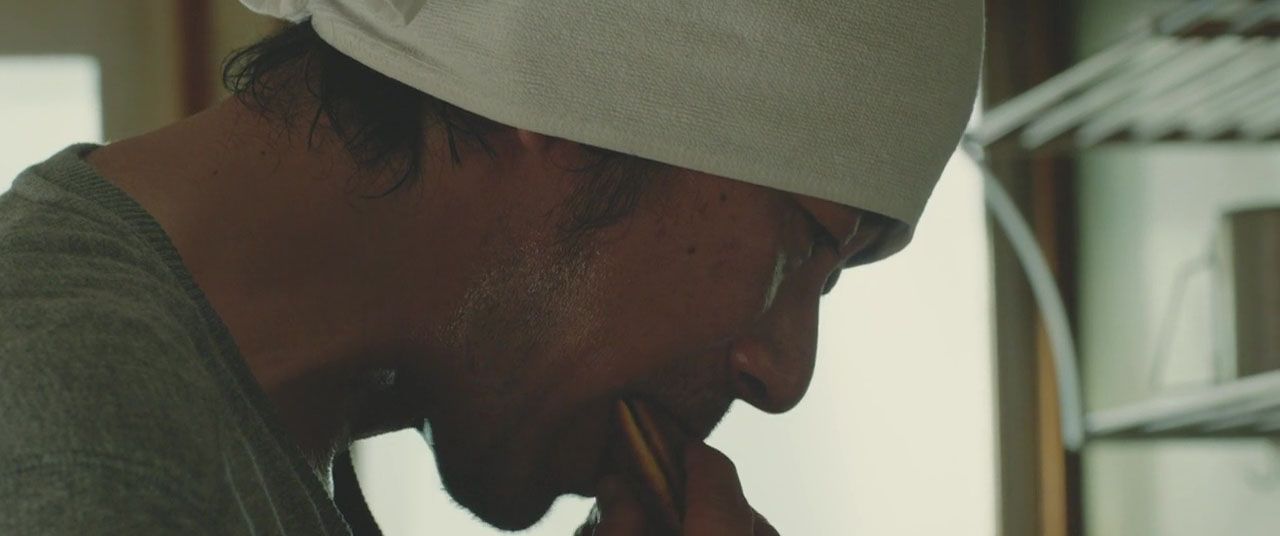By Katya Spiers, Third Year, History of Art & French
Though perhaps the least celebrated on-screen season, Spring films are abundant - from Studio Ghibli doughy flower petals to the daisy-dotted backdrops of Eric Rohmer’s Four Seasons (1990-98).
More so than ever, we have time to observe the Spring. Zest green buds and blossoms of Stuart Semple’s 'Pinkest Pink' paint, the shrill whistling of birds outside that knocks us out of our I-don’t-know-what-day-it-is-any-more slumber every morning. And though we can’t necessarily go out skipping through meadows every day, we can get a taste of the Spring on our screens.

‘In the cherry blossom’s shade / there’s no such thing / as a stranger,’ wrote Kobayashi Issa, one of Japan’s most celebrated Haikuists. Lasting for only a couple of weeks each year, the cherry blossom season is one of the most sacred times of the year. The blossoms book-end Naomi Kawase’s Sweet Bean (2015), in which the rustling of newborn leaves and the delicate sweetness of the Tokyo cherry blossom season serve as a reminder of the physical constant and inescapability of time.
| Your perfect quarantine day according to Studio Ghibli
Set in the outskirts of Tokyo, the film follows a year in the life of a baker (Masatoshi Nagase), who unexpectedly makes the acquaintance of 76-year old Tokue (Kirin Kiki), hired to help out in his dorayaki shop because of her revelatory and transformational red bean paste.
Though at points the idea of listening and looking for guidance in a pot of red beans feels a bit Team Too Much, every time Kawase’s camera pans across billowing cherry blossoms, the audience is given space to consider the weight of some harsher on-screen realities.

Namely, Japan’s leprosy prevention laws which, until 1996, kept sufferers of the disease quarantined in sanatoriums, and in which Tokue has been living since she was a child. For Tokue, the Spring is a means of escaping the prejudices that are so deeply entrenched in her everyday life. ‘They’re waving their hands…’ To me, there’s nothing more distinctly Spring than the at times unbearable nostalgia that piles up on top of me with every glistening ray of dappled sunlight.
The delicate sweetness of the Tokyo cherry blossom season serves as a reminder of the physical constant and inescapability of time
Spring means the departure of the cold season, and the birth of new life. In a Varda-esque caress of the trees and flowers, there’s a slowness to the way Kawase films that makes the film feel like a home-movie. This is not surprising given that Kawase is typified by her cinema-vérité, semi-autobiographical style, filming her own shadows in some of her previous films.
The delicate and considered portrayal of the film’s three central characters makes Sweet Bean difficult to watch without reminiscing about lost time and loved ones, giving the film a beautiful sentimentality without it bordering into insincerity.

‘We are born into this world to see it and to listen to it,’ Tokue narrates, as we watch a vat of red beans being soaked, washed, boiled and stirred. By taking the dried product and rehydrating it, Tokue breathes new life into not only the beans, but the dorayaki shop, and the lives of the unlikely friends she has formed. Relayed with images of swaying branches and falling blossom, the care with which the red bean paste is produced meditates on the passage of time, on learning and developing, caring for others and self-actualisation.
| Don’t let Coronavirus stop you from armchair travelling with these films to whisk you away
There’s something so incredibly cathartic about the gentleness of Sweet Bean. It felt like a child confiding a secret in a parent or older sibling - not easy but healing. It’s sweet and it’s optimistic, but there’s more to it than that. And besides, if there’s ever a time to be optimistic about the future, it’s this strange and confined Springtime.
Featured: IMDb / Aeon Entertainment
What films are you watching to get your springtime spirits up?









